detail profile wang sun
Peran Yang Di Mainkan Wang Sun
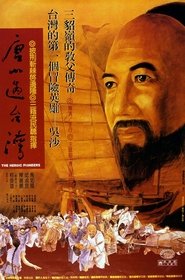 Taiwans submission for the Academy Award...
Taiwans submission for the Academy Award...Heroic Pioneers 1986
Taiwan's submission for the Academy Award for Best Foreign Language Film in 1986. In the story, the kindly and very efficient Chinese settlers are distrusted by the natives until they show that they are able and willing to cure an outbreak of plague. The daughter of the native Taiwanese chief has her own peace plan for the region, which involves finding the most eligible Chinese bachelor and marrying him.
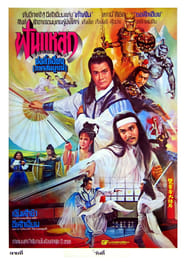 1980 Taiwanese action packed Wuxia film directed...
1980 Taiwanese action packed Wuxia film directed...Chu Liu Hsiang and Hu Tieh Hua 1980
1980 Taiwanese action packed Wuxia film directed by Lin Ying; written, produced and co-directed by Gu Long. The title characters are based on Gu Long's Chu Liu Xiang novel series set during the Sung dynasty.
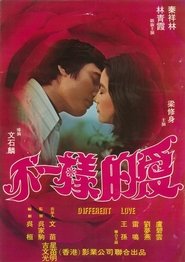 Brigitte Lin is Sung Hsiao Yu...
Brigitte Lin is Sung Hsiao Yu...Different Love 1976
Brigitte Lin is Sung Hsiao Yu, a young girl in love with Wen Hsing Yu (Charlie Chin), a botanist who's trying to cross-fertilize flowers to create a perfect breed of rose. But Hsing Yu has a rival, Tsui Wen Lun, who despises Wen Hsing Yu for being on better terms with his father AND capturing Hsiao Yu's heart. But when Wen Lun gets in with Hsiao Yu's father, that may be all she wrote. Can Hsiao Yu safely choose her preferred man - Wen Hsing Yu - if it ends up leaving her father in trouble? Or will Hsiao Yu sacrifice love for family?
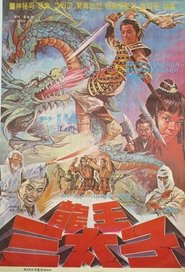 Tsu Hong Wu is a highly...
Tsu Hong Wu is a highly...A Story of Lou Po-Wen 1971
Tsu Hong Wu is a highly fictionalized fantasy retelling of the early years of Zhu Yuanzhang’s life that was obviously geared toward younger audiences. The tale actually begins in Heaven, where the various gods are busy paving the way for a new emperor. The very basic facts of Zhu Yuanzhang’s life are ostensibly correct, but it takes a rather unexpected turn into traditional giant monster territory, with a Taoist priest summoning a gigantic red-haired ogre (amusingly referred to as ‘superman’ in the subtitles) to destroy our heroes, who are in turn rescued when a golden dragon (the animal manifestation of one of the deities from earlier in the film) rises from the ocean to do battle with said ogre
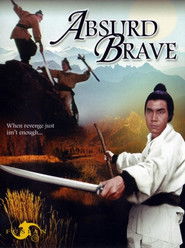 The arrest and execution of the...
The arrest and execution of the...The Absurd Brave 1969
The arrest and execution of the head of the outlawed Five Flower sect leaves his four offspring thirsty for revenge! But none of his children are more bloodthirsty than his eldest daughter. She leads her siblings on a murderous trail of vengeance, as they assassinate all of the officials involved in their father's execution, including the local governor. Chaos and lawlessness follow in their bloody wake. Somehow, Wu Liang, the governor's grown son, escapes the murderous wrath of the Five Flowers and finds his way to Master Ou, the absurdly deadly master of the martial arts. Can young Wu avenge his father and protect the public from the deadly Five Flowers when Master Ou treats the whole affair as a game? Find out in this wuxia classic!
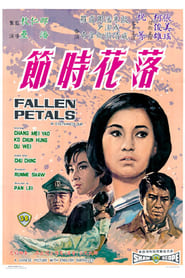 Taiwans most glamorous screen couple Ko...
Taiwans most glamorous screen couple Ko...Fallen Petals 1968
Taiwan's most glamorous screen couple, Ko Chun-Hsiung and Chang Mei-Yao, co-star in "Fallen Petals", a romance with the unique setting of Taiwan during World War II, when the island was a colony of Japan. Ko is drafted into the Japanese army and forced to leave his pregnant girlfriend behind. When he is presumably killed in action, Chang becomes a cabaret girl to support their baby. Thanks to director Pan Lei's sensitive scenario, the dramatic outcome is far from predictable.
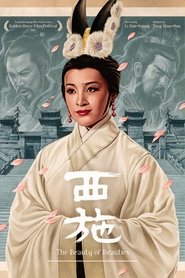 Hsi Shih The Beauty of Beauties...
Hsi Shih The Beauty of Beauties...Beauty of Beauties 1965
Hsi Shih: The Beauty of Beauties was one of the most ambitious films made in the Taiwan film industry in the 1960s. After leaving The Shaw Brothers studio in Hong Kong and moving to Taiwan, filmmaker Li Han-hsiang mounted this historical epic. Told through the story of Xishi (Hsi Shih), one of the 'Four Great Beauties' of Chinese history, the film portrays the war between two Chinese Kingdoms during the Warring States Period (475-221 B.C). After the kingdom of Yue is defeated by the kingdom of Wu, King Goujian of Yue takes pains to prepare for his revenge and rebuild his country. Knowing that King Fucha of Wu is lewd and lustful, he offers Xisi to the court of Wu to serve as Fucha’s concubine, with Fucha unaware that she is also a spy. She uses her charm to draw Fucha away from his office and governance, while King Goujian rallies his forces together to attempt to reclaim his lands.
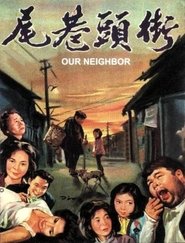 An orphaned girl in a povertystricken...
An orphaned girl in a povertystricken...Our Neighbor 1963
An orphaned girl in a poverty-stricken neighborhood is adopted by a kindly neighbor. He struggles to support her honestly, despite opportunities to participate in a neighbor’s scurrilous get-rich-quick schemes. Invoking the pain of Chinese exiles living in Taiwan, or missing relatives still in China, the touching film posits an in-between historical period during which it is crucial for displaced residents to maintain virtue as a bedrock of identity.


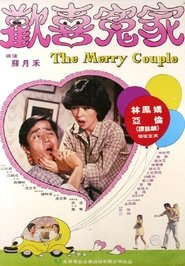 Taiwanese romance film
Taiwanese romance film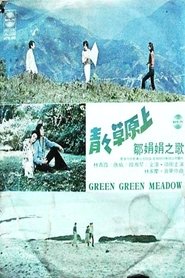 An early Brigitte Lin Romance
An early Brigitte Lin Romance